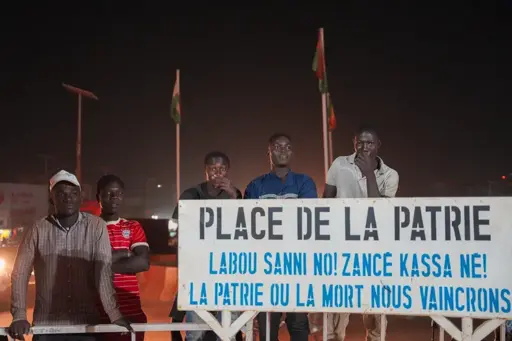On July 26, 2023, Niger’s military overthrew Mohamed Bazoum and established the National Council for the Safeguard of the Homeland (CNSP), a turning point that ignited deep conversations across Africa on sovereignty, neocolonialism, and the unfinished project of national liberation. In the months that followed, Niger, along with Mali and Burkina Faso, launched the Alliance of Sahel States (AES), a political and military pact that shook regional power structures and challenged decades of French imperial dominance in West Africa.
Two years on, the momentum continues. Pan African Today marked the anniversary with a webinar under the theme “Africa’s Sovereignty and the Unfinished Project of National Liberation”. Keynote speaker Abdourahamane Oumarou, president of Urgences Panafricanistes Niger, delivered a powerful analysis of the significance of July 26 and the broader change sweeping across the Sahel.
Read more: On the long march to sovereignty: Niger’s revolution against French neocolonialism enters third year
July 26, 2023: A break with neocolonialism
Oumarou began by anchoring the conversation in history. Though Niger formally gained independence from France in 1960, that independence remained largely symbolic. For decades, Niger remained tied to France through unequal defense treaties, military occupation, and exploitative control of strategic resources like uranium and gold.
According to Oumarou, the CNSP’s seizure of power on July 26 was not just a coup – it was a rupture, a refusal to remain in the orbit of French neocolonialism. “Despite the presence of US and French military bases,” he said, “our people remained insecure. In some cases, these forces contributed to that insecurity.”
The CNSP immediately initiated a diplomatic break with France, expelling troops and canceling defense agreements. Mass mobilizations followed, with masses demanding the removal of foreign forces and a new political direction. Oumarou highlighted key milestones in this process: from Macron’s announcement of troop withdrawal, to Niger’s formal exit from ECOWAS in January 2024, and the dissolution of the G5 Sahel alliance in December of the same year.
Oumarou explained that the military coup was the culmination of years of growing frustration among the masses, who had endured successive governments more loyal to foreign interests than to the needs and aspirations of their own people.
Alliance of Sahel States, a new political imagination
Perhaps the most important moment came on September 16, 2023, when Niger, Mali, and Burkina Faso signed the Charter of the Alliance of Sahel States (AES) – a framework for military, economic, and political cooperation. The AES, Oumarou argued, represents a revolutionary model for regional integration, outside the influence of France, ECOWAS, or Western finance institutions.
Further, the discussion outlined key next steps for consolidating the gains of the Sahelian revolution:
Advancing food sovereignty through local agricultural development.Building a unified Sahelian army to combat terrorism without foreign intervention.Accumulating gold reserves as a foundation for a new regional currency to replace the CFA franc.Deepening political education, especially among youth, to ensure the continuity and sustainability of the liberation struggle across generations.
These efforts aim to ensure self-reliance, not only in military and economic terms but in ideological orientation. Oumarou emphasized that liberation is not a moment but a process, requiring vigilance, unity, and historical consciousness.
Beyond borders: the Pan-African dimension
The CNSP’s choice to mark July 26 without fanfare was deliberate. It is not a day for just celebration, but for reflection and continued mobilization as Oumarou says. The date resonates beyond Niger – it is also the anniversary of the Cuban Revolution, drawing a clear connection between anti-imperialist struggles from Havana to Niamey.
He also spoke of Thomas Sankara, Muammar Gaddafi, Kwame Nkrumah, and Amílcar Cabral as symbols of an unfulfilled but enduring African revolution. And by reminding participants that whenever Western powers applaud an African leader, it is rarely for the benefit of the people. “True sovereignty,” said Oumarou, “is rarely met with applause – it is met with sanctions, embargoes, and disinformation.”
This was particularly evident in the post-revolution sanctions imposed on Niger, the blocking of medicine and food imports, and energy disruptions imposed by France through Nigeria.
The unfinished revolution and the path ahead
The central theme of the discussion was clear: sovereignty is not a slogan – it is a material, political, and cultural practice. It’s the reclaiming of land, food systems, currencies, education, and historical narratives. The discussion called on popular organizations to deepen political education, particularly among youth, and to prepare for a long, generational struggle.
The Pan-African revival brewing in the Sahel is inspiring resistance movements across the continent. New generations are rising to confront the legacy of Berlin and Bretton Woods, and to shape a new continental order – one not dictated by the IMF, NATO, or the EU, but by the sovereign will of African peoples.
As Oumarou put it: “Despite decades of struggle, our forebears did not fully succeed. It is now our task to carry the torch, complete the work, and win lasting freedom.”
The post Two years on: Niger’s revolutionary anniversary marks continued defiance for sovereignty appeared first on Peoples Dispatch.
From Peoples Dispatch via this RSS feed


